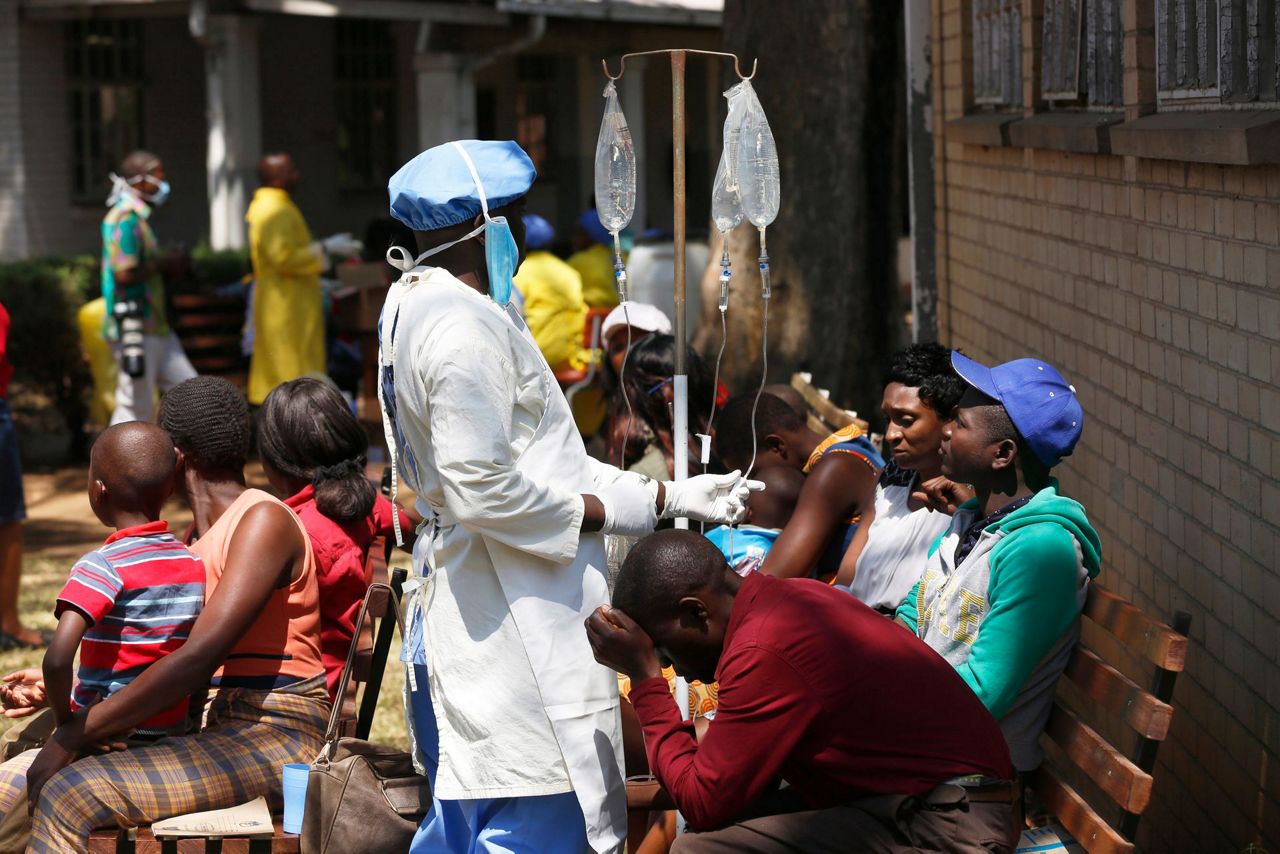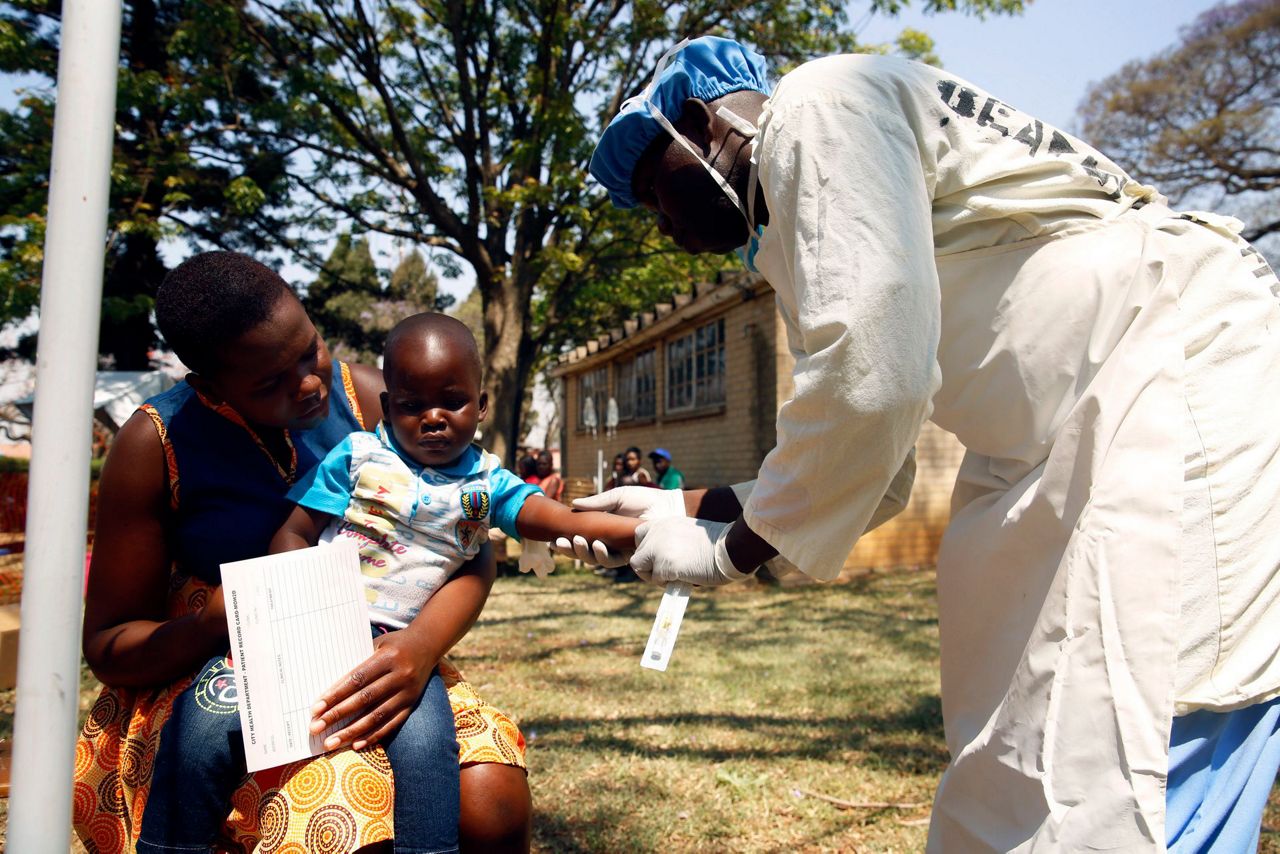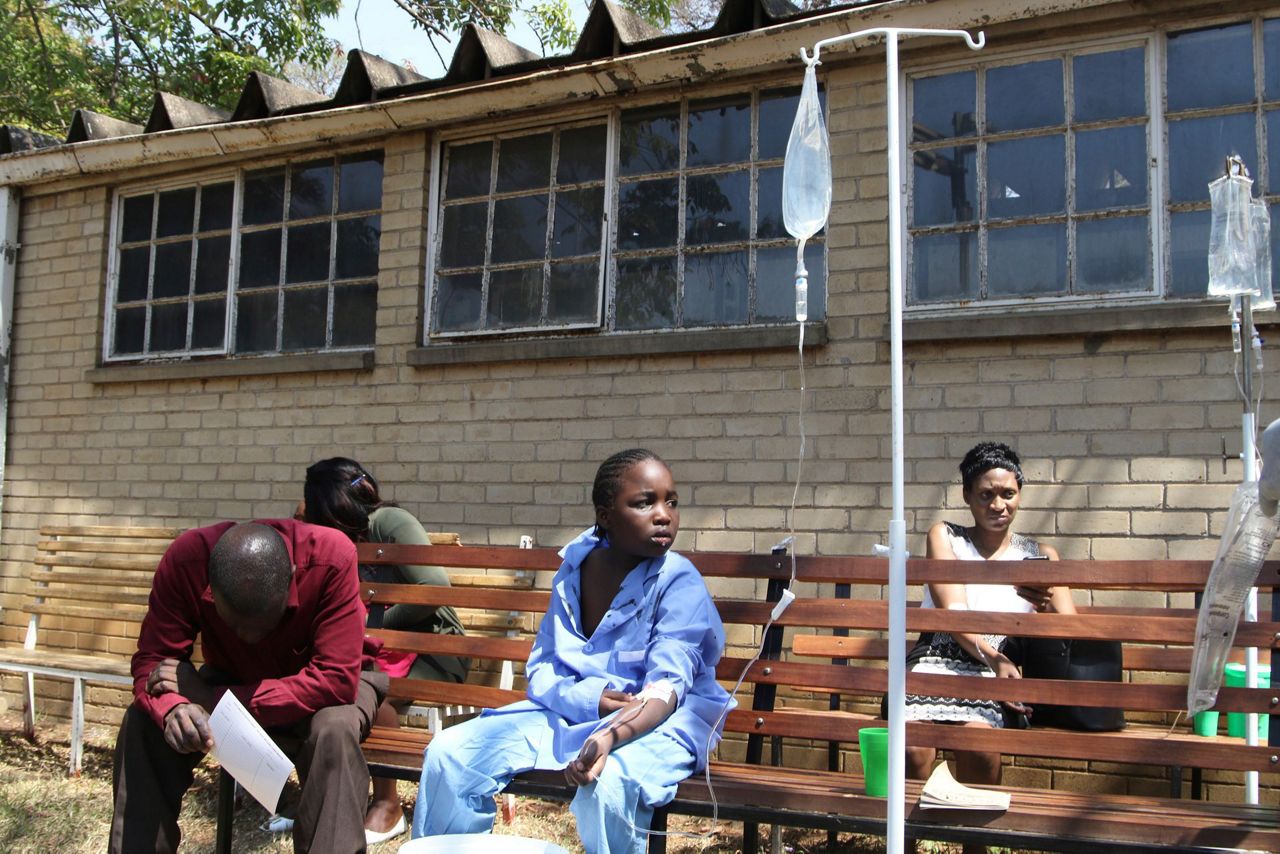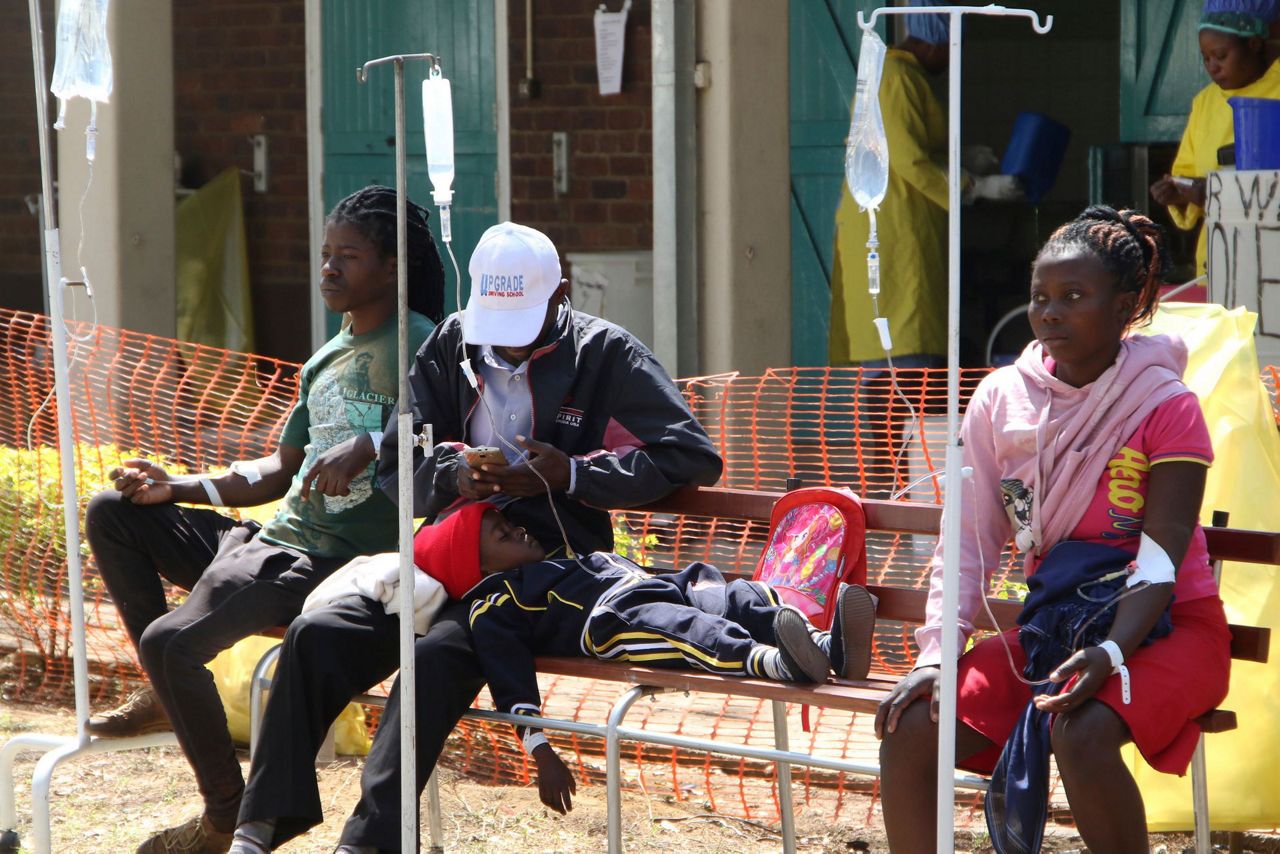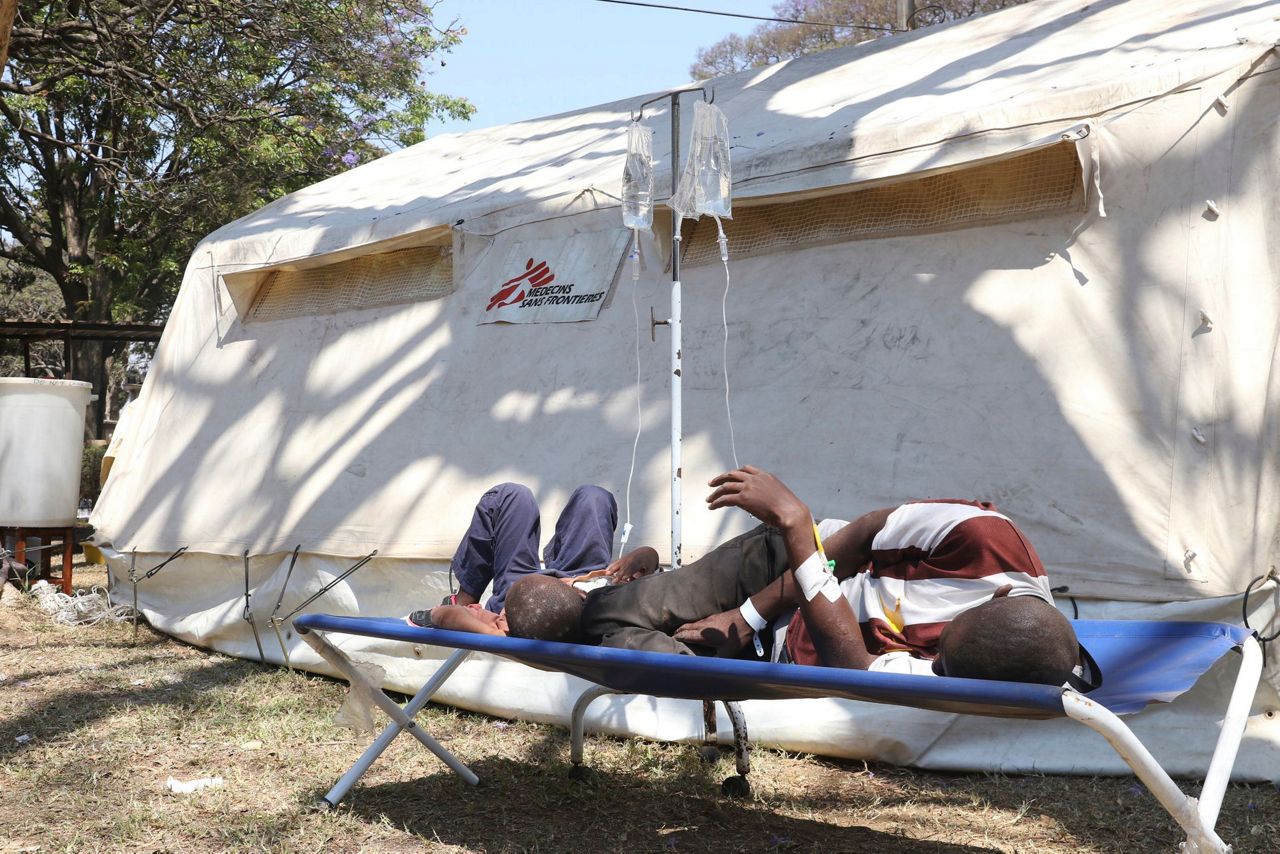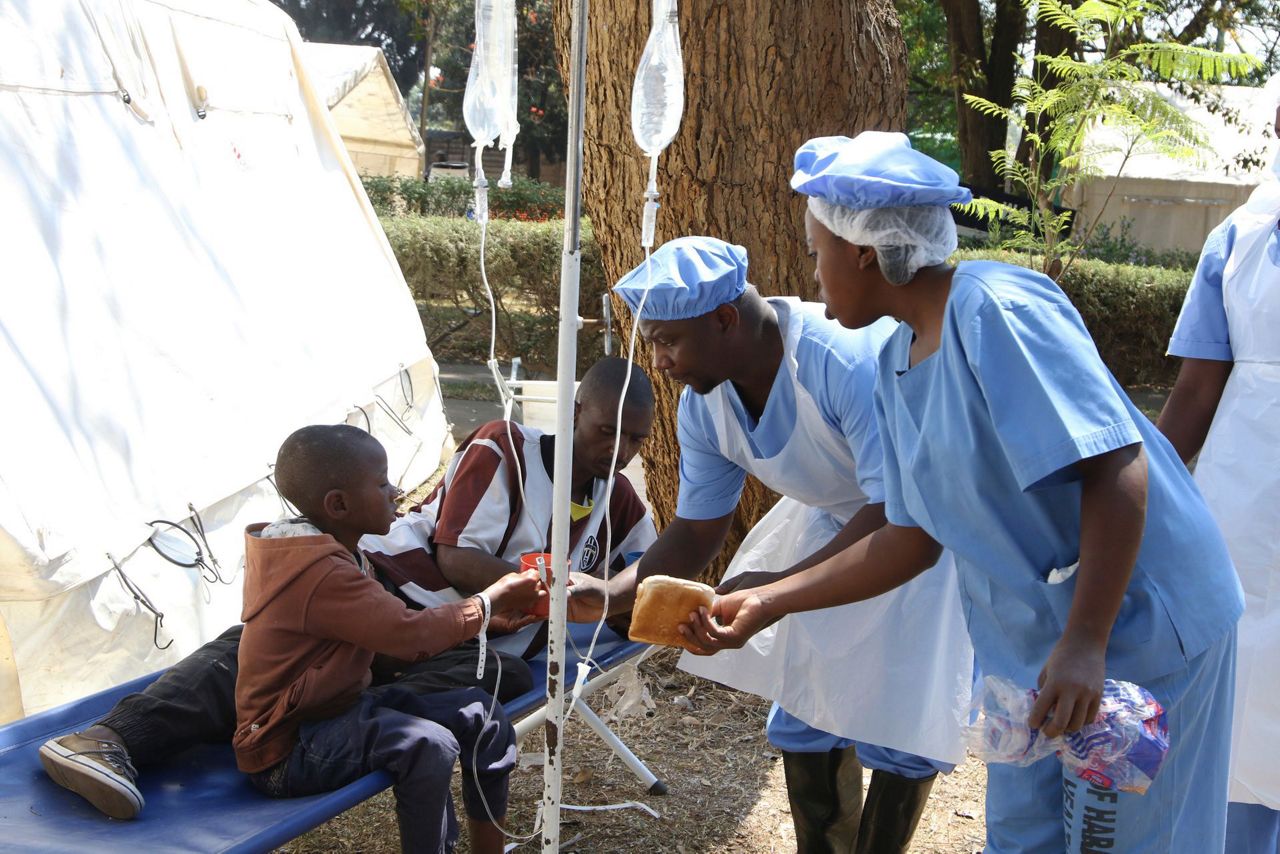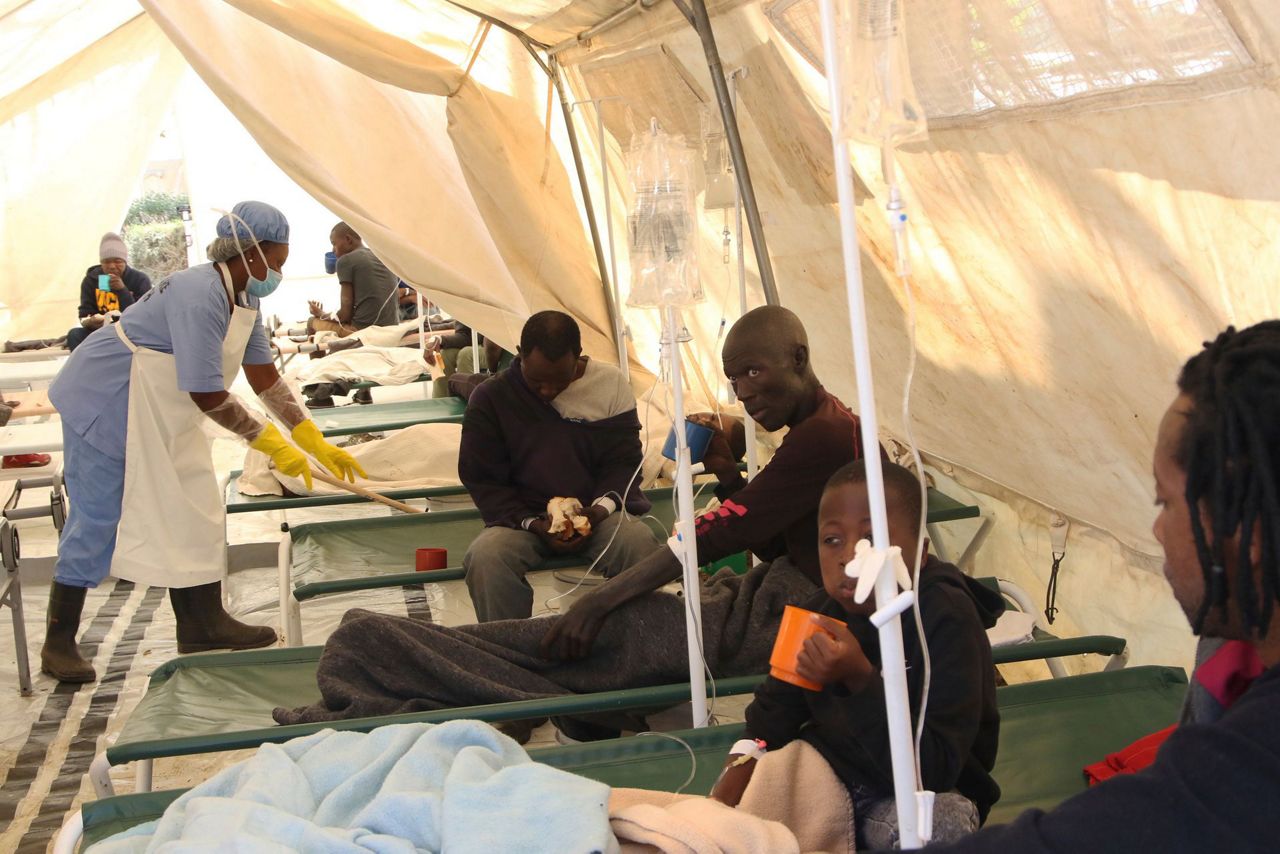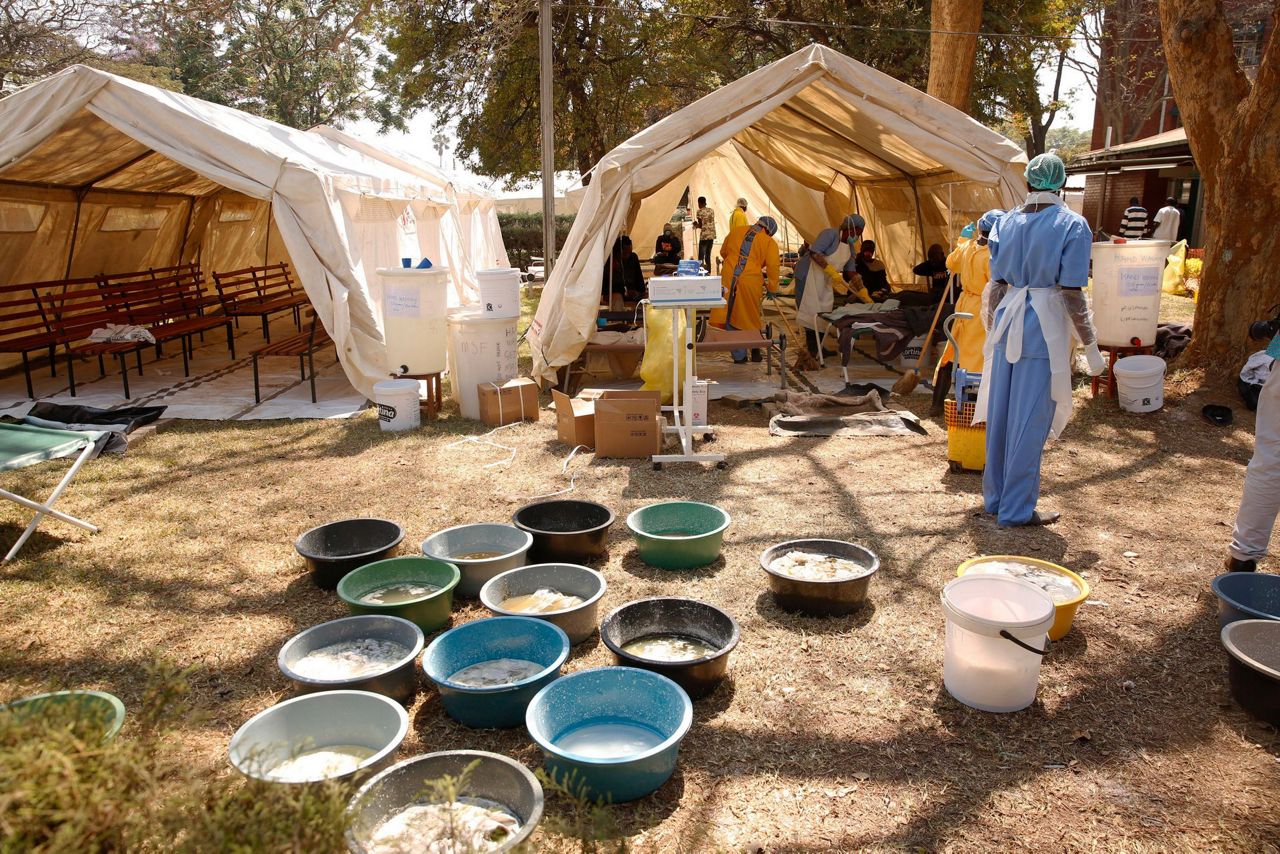HARARE, Zimbabwe (AP) — Zimbabwe's police said Wednesday that they are banning "public gatherings" in Harare in an effort to curb a cholera outbreak that has killed 21 people.
Police spokeswoman Charity Charamba said in a statement Wednesday that the ban aims to alleviate "the continuous spread" of cholera in the capital, where the government has declared an emergency.
Zimbabwean law broadly defines a public gathering as "a public meeting or a public demonstration."
Health Minister Obadiah Moyo said Wednesday that the number of infections has risen to 3,067, up from just over 2,000 that were reported Tuesday.
Recent deaths include a school headmaster and two schoolchildren in Glen View, a poor suburb that has been identified as one of the epicenters of the outbreak. Moyo said a school in the suburb has been closed.
More than 4,000 people died in a cholera outbreak at the height of the southern African country's economic problems in 2008. Since then, water and sanitation infrastructure has been collapsing.
The government has adequate stocks of medicine and is taking steps "to ensure that we do not go back to the 2008 situation," Moyo said.
Residents in some Harare suburbs have gone for months without tap water, forcing them to dig shallow wells and boreholes that have been contaminated by raw sewage flowing from burst pipes.
There are also many street vendors whose food items, including meat, are sold in the streets near open sewers.
"It is essential that vending stops ... and police are coming in to help with that," said Moyo.
Cholera is caused by ingestion of contaminated food or water and can kill within hours if untreated.
The ban on public gatherings comes as opposition leader Nelson Chamisa was planning a rally to conduct a mock inauguration ceremony, claiming he was cheated out of victory in elections held in July.
Chamisa visited some victims of the cholera outbreak on Wednesday.
The cholera outbreak highlights the failure of Zimbabwe's government to maintain basic public health standards, said Amnesty International.
"The current cholera epidemic is a terrible consequence of Zimbabwe's failure to invest in and manage both its basic water and sanitation infrastructure and its health care system," said Jessica Pwiti, Executive Director of Amnesty International Zimbabwe, in a statement released Wednesday. "It is appalling that in 2018, people are still dying of such a preventable disease."
___
Follow Africa news at https://twitter.com/AP_Africa
Copyright 2018 The Associated Press. All rights reserved. This material may not be published, broadcast, rewritten or redistributed.



